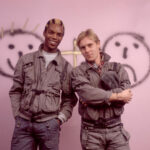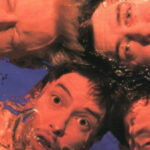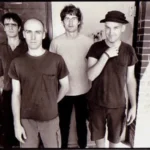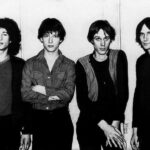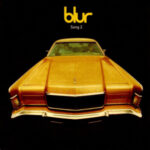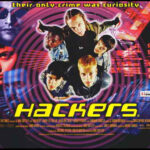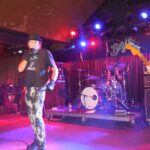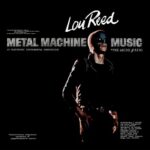Jim Carroll was an American poet, author, and punk rock musician, best known as the frontman of the Jim Carroll Band. Born on August 1, 1950, in New York City, Carroll led a multifaceted life that spanned literature, music, and the exploration of the human condition.
Jim Carroll grew up in Manhattan, in the Inwood neighborhood. His childhood was marked by a keen interest in literature and a rebellious spirit. At the age of 13, he entered the prestigious Trinity School on a scholarship. It was during this time that he began experimenting with drugs, particularly heroin, which would later become a significant theme in his writing.Carroll’s literary talents blossomed during his teenage years. At the age of 16, he published his first collection of poems, “Organic Trains.” The work gained attention for its raw, unfiltered depiction of urban life and drug addiction. Carroll’s ability to capture the gritty reality of his surroundings set him apart in the literary scene.
In 1969, he enrolled at Columbia University, where he studied poetry under the renowned poet Kenneth Koch. Carroll’s second poetry collection, “4 Ups and 1 Down,” was published in 1970. His work continued to evolve, reflecting both the counterculture movement of the 1960s and his personal struggles with addiction.
Carroll’s most well-known work, “The Basketball Diaries,” was published in 1978. The book is a semi-autobiographical account of Carroll’s teenage years, detailing his experiences playing basketball for Trinity School and his descent into drug addiction. The raw and unapologetic nature of the narrative resonated with readers, establishing Carroll as a significant voice in contemporary literature.
The success of “The Basketball Diaries” led to its adaptation into a film in 1995, starring Leonardo DiCaprio as Jim Carroll. The movie brought Carroll’s story to a wider audience and solidified his place in popular culture.
While Carroll had established himself as a respected poet and author, his foray into music was somewhat unexpected. In the late 1970s, inspired by the burgeoning punk rock scene, Carroll formed the Jim Carroll Band. The band consisted of Carroll on vocals and rhythm guitar, Brian Linsley on lead guitar, Steve Linsley on bass, Wayne Woods on drums, and Terrell Winn on keyboards.
The Jim Carroll Band quickly gained attention for their energetic and rebellious sound. In 1980, they released their debut album, “Catholic Boy,” which featured iconic tracks like “People Who Died” and “Wicked Gravity.” The album’s themes often mirrored Carroll’s literary work, exploring topics such as addiction, mortality, and the struggles of urban life.
“People Who Died” became the Jim Carroll Band’s most well-known song. The track, a poignant and reflective piece, paid homage to friends and acquaintances who had succumbed to drug addiction, violence, or other tragic circumstances. The song’s lyrical depth, coupled with Carroll’s distinctive delivery, resonated with audiences and solidified the band’s place in the punk rock landscape.
The Jim Carroll Band’s music was characterized by its fusion of punk, new wave, and rock elements. Carroll’s lyrics were introspective and often dealt with themes of mortality and the human condition. While the band did not achieve mainstream commercial success, their influence on the punk and alternative music scenes was substantial.
Following the release of “Catholic Boy,” the Jim Carroll Band continued to tour and record. However, subsequent albums did not achieve the same level of critical acclaim or commercial success. The band eventually disbanded in the mid-1980s.Jim Carroll continued to write poetry and prose throughout his life. He published several more collections, including “Fear of Dreaming” (1993) and “Void of Course” (1998). Despite battling health issues, including a heart attack in 2009, Carroll remained active in both literary and musical pursuits.
Jim Carroll passed away on September 11, 2009, at the age of 60. His contributions to both literature and music left a lasting impact, influencing subsequent generations of artists. Carroll’s ability to navigate the realms of poetry and punk rock with authenticity and raw emotion solidified his legacy as a true icon of counterculture expression.
This post has already been read 262 times!

